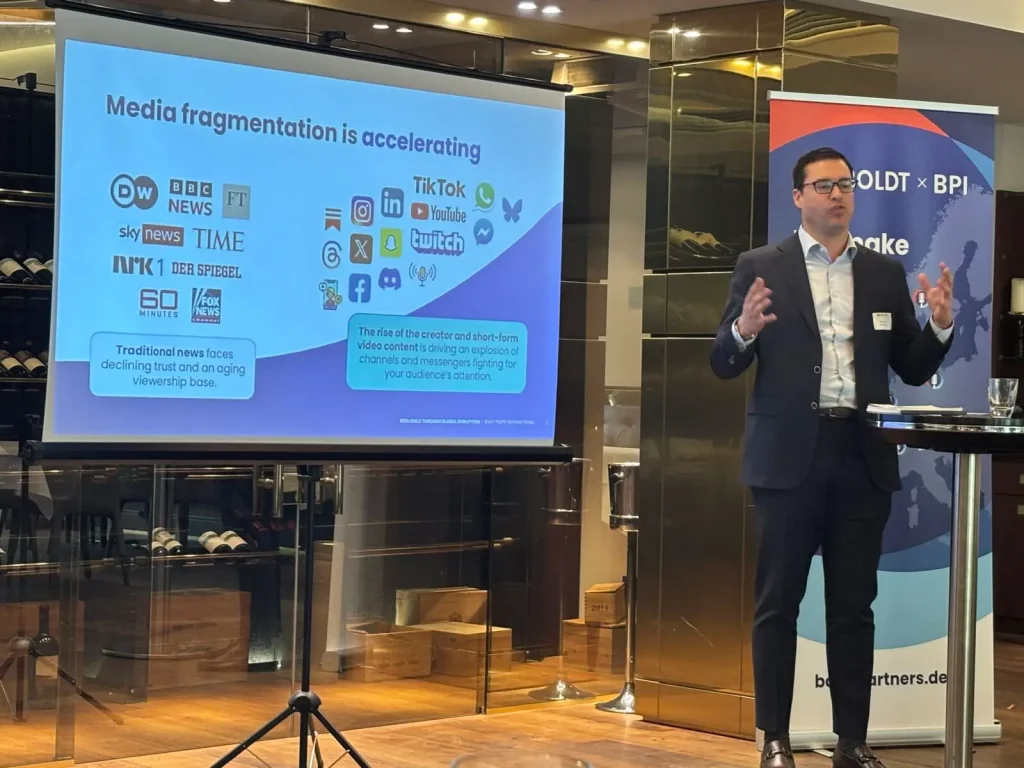Bygge motstandskraft midt i sårbarhet
8. mai 2025
by Steve Earl
None of us have experienced anything like the disruption and the political discourse of the past few months.
Increased geopolitical tensions, a fast-changing news environment, often extreme tariff changes and corporate concerns over being singled out for public criticism have combined to create daily headaches for corporate and public affairs teams.
It’s easy to understand why they might feel more vulnerable. Certainty has been in short supply, and many large companies have been challenged by stakeholders to respond to rapid and often uncomfortable change.
That was the focus of conversation at three discussion events which we held in Berlin, Oslo and London this week, led by Ben LaBolt, BPI Group’s new President. We brought senior communications and policy leaders together to understand how we’re working to help clients tackle these challenges, and above all what they can be doing to make their reputations more resilient at a time when it can feel like they’re being threatened on multiple fronts.
The discussions focused on several core topics:
- The nature of reputation promotion and protection has changed as media habits have changed, with more and younger readers now expecting news information to come to them rather than actively seeking it
- That news dynamic leaves the average company more exposed to harmful narratives, with ‘bad actors’ able to serve up misinformation and disinformation packaged as apparently legitimate and trustworthy content
- The media environments becoming ever-more fragmented but also creating new and powerful sources of influence including independent podcasts and long-read slots in established media
- Until broad economic recovery is achieved, we can expect this widescale disruption and its associated challenges to continue

We also looked at the main conclusions from BPI Group’s Resilience Index, which showed that companies can develop better protection against reputation vulnerabilities and that such firms can become trusted ‘stewards’ of positive change. The index, developed through nearly 17,000 interviews across Europe and the US, identifies factors that contribute to brand resilience, the types of misinformation that cause the most harm and strategies for protecting brand reputation.
Those reputation vulnerabilities and efforts to guard against false narratives will always vary by industry and by country, and whether the company is based in the US or Europe. But there are also many commonalities in how resilience can best be built and maintained – adopting a campaign-centric mindset, understanding and tapping into new and influential content and channels, and making better use of data analysis to test, develop and evaluate effective communication. Moreover, companies wanting to increase resilience should consider establishing a brand platform that demonstrates they are a trusted steward of positive change.